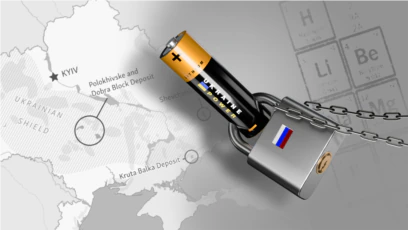US President Donald Trump has proposed a deal to Ukraine where the country would secure US aid by providing access to its rare earth minerals. These minerals, used in high-tech manufacturing and renewable energy products, have become increasingly valuable due to their use in batteries, computers, smartphones, and electric cars.
Ukraine possesses substantial deposits of critical minerals, including rare earths, lithium, titanium, zirconium, and graphite. However, the country is heavily dependent on the US for weaponry and equipment to fight against the Russian invasion.
Trump’s proposal has sparked concerns, with some viewing it as an attempt to make Ukraine pay for US assistance. Kremlin spokesman Dmitry Peskov described the offer as “clearly an offer to Ukraine to buy U.S. assistance.”
The US has already appropriated $174.2 billion for Ukraine-related purposes, with the majority going to defense-related accounts. Trump’s move to condition aid on access to rare earth minerals may be seen as a bargaining chip to get Ukraine to the negotiating table.
It’s worth noting that this isn’t the first time Trump has conditioned US aid to Ukraine on concessions. During his first presidency, he was impeached for suggesting he would unfreeze US aid if Ukraine reopened an investigation into a Ukrainian energy company linked to Joe Biden’s son.
Rare earth minerals are a class of about 17 minerals, including yttrium, cerium, and lanthanum, that are found in trace amounts throughout the Earth’s surface. They are in increasing demand due to their use in high-tech products.
The ongoing race to locate, secure, develop, and monetize rare earth minerals has been accelerating for years. Estimates of the minerals in North America stand at about 3.6 million tons in the United States and more than 14 million in Canada.
China, which produces about 60% of all rare earths in the world and processes nearly 90%, rattled global markets when it announced a ban on rare earth extraction and production in 2023. This set off alarm bells in the West, where lawmakers and policymakers worried that Western technology would be crippled by a lack of supply of rare earth minerals.
Russia also has substantial rare earth and critical mineral reserves, though its production capacity lags substantially behind China and other countries. Anything that complicates life for Ukraine is seen as a good thing for Moscow, which knows that US weaponry has kept Kyiv in the fight.
The situation highlights the complex web of interests and motivations at play in the conflict between Ukraine and Russia, with the US and other global powers exerting their influence in pursuit of their own strategic interests.
